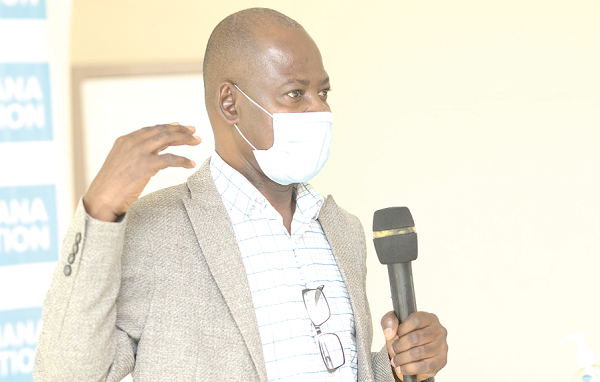
Enact laws to ensure independence of accountability institutions - CSOs
The Chairman of the Civil Society Platform on Oil and Gas, Dr Steve Manteaw, has called for the transformation of the country’s legal regime to give independence to state accountability institutions to enable them to function effectively.
That, he said, would help in the fight against corruption, especially in the extractive sector, such as the mining industry.
“If we really want to fight corruption in the sector, we should think of legal arrangements that provide independence for people appointed to head state accountability institutions in the country, to the extent that the President could even be a subject of investigations by these agencies,” he said.
Dr Manteaw made the call in a presentation at a stakeholder meeting on the extractive industry organised by the STAR- Ghana Foundation.
Event
The meeting, which took place in Accra last Thursday, was attended by stakeholders in the extractive sector, including CSOs, members of academia and the media, to discuss pertinent issues and the outcome of research findings in the sector.
They also made presentations on topics such as: “Political economy analysis of contracting decisions and contracting outcomes in Ghana’s upstream oil and gas industry” and “The role of CSOs and the media in the fight against extractive sector corruption”.
AGYAPA
Dr Manteaw, who made a presentation on “The political economy analysis of Agyapa transaction”, said the deal was opaque and did not represent the best interest of the public, and that despite that fact, state accountability institutions, such as the Economic and Organised Crime Office (EOCO), the Commission on
Human Rights and Administrative Justice (CHRAJ), the National Investigations Bureau (NIB) and the Criminal Investigations Department (CID), were yet to conduct investigations into the deal.
According to him, the heads of those institutions were all appointees of the President and, therefore, risked being removed from office if they took bold decisions to investigate such matters, adding that that raised critical questions about the effectiveness of checks and balance.
However, he said by virtue of the independency granted to the Office of the Special Prosecutor (OSP), it was able to intervene in the Agyapa deal that led to public resistance to the deal.
The chairman said if the government intended to bring the bill back to Parliament for consideration, then there was the need to ensure comprehensive consultation with CSOs and other stakeholders to ensure that it was done in the best interest of the people.
Media specialisation
One of the researchers, Mr Gideon Peasah, underscored the need for journalists to specialise in the extractive sector, since it required expert knowledge to enable them to report on it effectively.
He also entreated them to engage CSOs in their public sensitisation programmes to ensure good governance practices.
